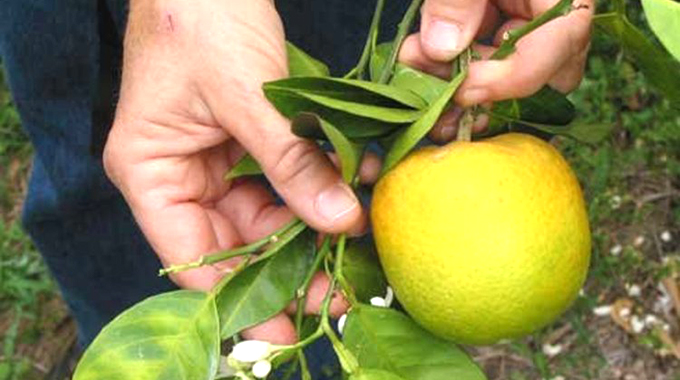
Sifelani Tsiko Agric, Environment & Innovation Editor
ST: Has citrus greening by any chance affected Zimbabwe?
SN: At present, Plant Quarantine and Plant Protection Services Institutes’ research officers have been conducting surveillance since June 2013 and no detection of the vector Diaphorina citri and no Asian citrus greening disease has been detected in all citrus (sweet oranges, citrus sinensis) growing fields in Zimbabwe.
ST: Where exactly has this surveillance been undertaken?
SN: The institute has been conducting surveillance in major citrus growing areas mainly in Matabeleland South (Bishopstone, Cawood and Nottingham Estates), Mashonaland Central (Mazowe Estates, Mvurwi) and Mashonaland West (Chegutu) and no plantations have been affected by this pest.
A pheromone trapping programme was established and is being monitored by our specialists for the detection of Diaphorina citri.
The institute has capacity to diagnose the disease and any farmers suspecting the disease may send samples to our nearest offices to facilitate for testing. Any of the following signs may be used in collecting samples for testing — mottled chlorotic leaves, yellowing of veins, premature defoliation small fruits that are very sour, red nose on fruit, poor fruit set and stunted growth of the tree and eventual death.
ST: What is your institute doing to raise awareness over this citrus disease?
SN: The institute has been raising awareness on the disease and the vectors that transmit the disease, especially to all citrus growing farmers in the areas visited. This programme is still ongoing, targeting both commercial and smallholder farmers who are producing citrus.
ST: What are some of the common citrus diseases in Zimbabwe?
SN: Some of the common citrus diseases include citrus black spot caused by fungi Phyllosticta citricarpa, fruit and leaf spot caused by Pseudocercospora angolensis, and gummosis, citrus stem dieback, citrus brown rot disease and citrus slow decline disease.
ST: What is the estimated hectarage of plantations in Zimbabwe and the value of its output a year?
SN: Citrus production has been and is still a major contributor to GDP in Zimbabwe, with majority of citrus produced in Matabeleland South being exported to specific European Union countries which include Netherlands, Spain, UK and Sweden as well as Bahrain and the UAE.
Recently, China expressed interest to import our citrus. Mazowe Estates and other estates in Mvurwi that used to export a lot were affected by the detection of fruitfly Bactrocera dorsalis, a pest that we are officially controlling with the intention to eradicate.
An estimated 6 000 hectares are under citrus, but it is important to note that a number of citrus plantations in Mashonaland Central have either been destroyed by wild fires or totally abandoned, resulting in pests building up with no control measures in place.
The institute, therefore, calls for area wide management of any citrus pests so as to reduce their impact on total yield and potential to export. The value of the citrus industry goes a long way into supporting industries involved in processing products such as beverages, employing a large force of manpower from its production, harvesting, packaging, transportation, processing, distribution and retailing.
ST: What is your general comment on citrus diseases in Zimbabwe?
SN: Generally, citrus diseases are not a threat to us as we are using integrated pest management strategies especially in commercial orchards. This has been necessitated also by the need to meet our importers’ requirements for safe trade as some of these pests are considered quarantine pests. This is the reason why we are still exporting to the EU and other markets.
